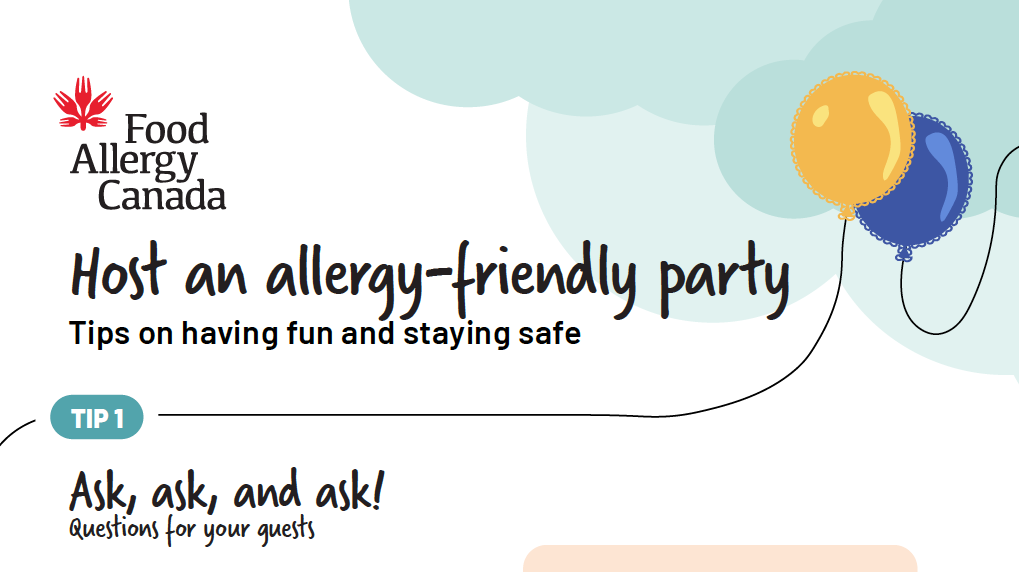Here are some tips to help make holidays easier to manage:
1. Plan ahead
Going to a relative’s home? Talk to them in advance about your child’s allergies. Discuss the menu, safe food preparation and (if your child has asthma) any triggers in the home such as pets or woodsmoke. Talk to your child too, about what to expect and how they can manage their allergies. Also, make sure your child’s epinephrine auto-injectors are up to date.
2. Be a host
Sometimes it’s preferable to be the host, especially for a large gathering. Although it can take a lot of work to host, there are some ways to make it easier. Communicate clearly with guests in advance. If you want to make all the food, suggest that guests bring drinks instead. If guests are bringing food and you have house rules (such as no nuts), let them know in advance so there are no surprises.
3. Have a strategy for the day
Talk to your child about managing their allergies, what the meal plan is and how to say “no” politely, if they need to. Many parents of young children take turns watching the child in shifts, so that responsibilities are clear (and each parent gets a break). If you have a young child who needs watchful guidance, you can make it more fun by creating games and contests for your child and the other children.
Things can get messy at parties, especially in a big group with lots of small children. Hand washing is one of the most effective ways to prevent cross-contamination from hands to mouth or eyes.
If a family tradition is not allergy-friendly, work with your family to find the best solution.
4. Review your emergency plan
Now is a great time to review your emergency plan, and read up on the signs and symptoms of anaphylaxis and what to do in an emergency.
Also, remind your child that they should let you and others know if they are feeling unwell or they think they may be having a reaction.
5. Empower your child
“Lessons learned early are lessons learned for life,” says Marilyn Allen, a food allergy consultant. Prepare your child ahead of time by practising how to ask questions about ingredients and menu items. Encourage them to speak for themselves — and praise them for being thoughtful and managing their food allergies. Marilyn suggests developing a script and list of questions together with your child, and developing a written list of allergens.
Managing food allergies is often a team effort for the whole family. Take a moment to recognize the efforts of your team – your child, siblings and yourself, in making the holidays happy and relaxed for all of you.


